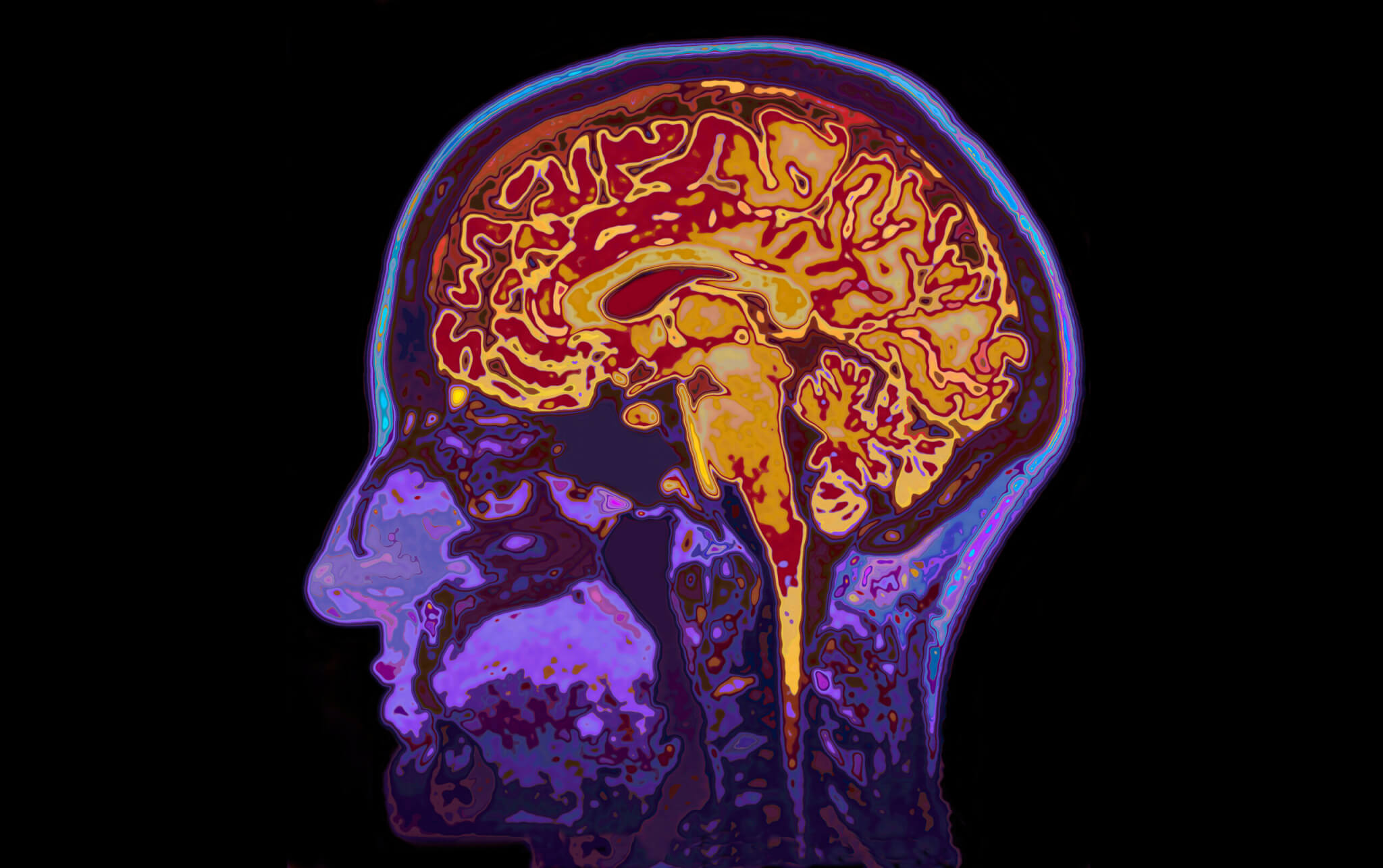With many forms of cancer, the earlier a diagnosis is made and treatment started, the greater the chance that the outcome will prove successful, whether that means making a complete recovery or extending life expectancy.
It’s certainly the case with many brain tumours. Early discovery and treatment can bring positive results, including a full recovery.
However, things don’t always go to plan. When you start to get the symptoms we describe later in this article and make an appointment to visit your GP to get checked out, the least you expect is that the medical professionals will do their work competently. Most times, they do, but one mistake can prove very costly, and when that happens, the consequences for you can be devastating.
People bring brain tumour medical negligence claims when there has been a delay in diagnosis (or treatment) or a misdiagnosis by medical professionals.
To bring a brain cancer misdiagnosis claim through to a satisfactory outcome, not only must your clinical negligence solicitors prove on the balance of probabilities that the medical professionals were negligent and that they breached their duty of care to you, but they must also show that the medical negligence caused a worsening of your condition or a new medical problem altogether.
Should you or a loved one have suffered harm because of substandard care from a medical health professional, you will find the help of an experienced firm of medical negligence solicitors invaluable to ensure you get the right legal advice and support when you need it the most. Contact Mooneerams Solicitors to find out how we can assist you.
What are Brain Tumours, and what is Brain Cancer?
Primary brain tumours are relatively rare, with approximately 12,700 diagnoses every year.
Brain tumours form when cells grow, multiply and spread abnormally in the brain.
Primary brain tumours originate in the brain.
The origins of secondary, or ‘metastatic’ brain tumours start in other parts of the body, such as the lungs or bowel, and spread through the bloodstream into the brain.
We’ll refer to both terms throughout this article, so it will be helpful to know what we mean by ‘brain cancer’ and ‘brain tumour’.
All brain cancers are tumours. However, not all brain tumours are ‘brain cancers’. The reason? Tumours can be either:
- Cancerous (malignant or dangerous))
- Non-cancerous (‘benign’ or not harmful)
Benign tumours are not cancerous and don’t usually spread. However, they can cause other problems, such as putting pressure on brain tissue, and may, as a result, need to be removed through surgery.
Still, benign tumours rarely develop into cancer, although they may if the tumour is not wholly removed under surgery.
Brain tumours are graded from 1 to 4, with grades 1 and 2 low-grade and 3 and 4, high grade. They grow at different rates. Grade 1 and 2 tumours are slow to grow and not immediately life-threatening.
On the other hand, with grade 3 and 4 tumours the cancer is likely to grow aggressively and at speed. In this situation, brain cancer quickly causes a serious threat to life.
Both adults and children get brain tumours. However, getting older, having been exposed to radiation (for other cancer treatments), and having a family history of suffering from brain tumours may increase the risk of a brain tumour.
What are the Symptoms of Brain Cancer and Brain Tumours?
Symptoms include:
- Headaches (affect approximately half of all brain tumour patients)
- Seizures (fits) affect up to 80% of brain tumour patients
- Frequently feeling or being sick
- Personality changes or memory problems
- Vision problems, including blurring, double vision, and blind spots
- Speech and communication issues.
- Dizziness
As with many types of cancer, any list of symptoms is not exhaustive. Equally, many of the symptoms listed may also be indicators of much less serious ailments.
Unfortunately, this commonness of symptoms may be a contributory factor in cases of missed or misdiagnosis of brain cancer.
For this reason, it’s essential to impress upon your GP how the symptoms are making you feel and that they are not symptoms you have previously experienced frequently or at all.
How are Brain Tumours Diagnosed?
If you have symptoms, your first port of call is your GP. It’s a good idea to do this at the earlier onset of any unfamiliar symptoms rather than waiting until later. When you get an appointment, it may be in person, over the phone, or via video call.
Whatever the type of consultation, you must tell your doctor about all the symptoms you are experiencing and how they affect your everyday life. (It’s a good idea to write down what you want to tell your GP before the consultation so you don’t forget anything).
The doctor will assess you and may carry out some tests. If they have any concerns, your GP will refer you to a brain specialist, known as a neurologist. If the GP suspects you may have brain cancer, the referral will take place very soon after you have seen the GP.
At your neurologist’s appointment, you will undergo tests to find out if you have a brain tumour. These tests will include:
- Scans – MRI scan, CT scan and a PET scan
- Biopsy – which is a sample of the tissue taken from the affected area and sent for testing
- Neurological examination – this usually includes testing the reflexes, co-ordination and cognitive function
- Blood tests
- Lumbar puncture – to check the fluid that circulates around the brain.
If, after the neurologist concludes their examination and gets the results of tests, it is confirmed you have a brain tumour, treatment options will be discussed between the medical professionals responsible for your care.
How are Brain Tumours treated?
There is no ‘one size fits all’ solution when treating brain tumours. The treatment will depend on your age and overall health. However, the main factors in determining the kind of treatment that’s appropriate for you will be:
- The type of tumour
- Which part of your brain the tumour has developed in
- How big the tumour is
- How far it has spread
- How abnormal the cells are
Treatment types include:
- Steroids and other medicines reduce the swelling around the tumour and provide pain relief
- Surgery to remove the tumour(s).
- Radiotherapy
- Chemotherapy
- SRT (Stereotactic Radiotherapy)
- New treatments such as immunotherapy and targeted therapy
What is the prognosis for a brain tumour?
As with many types of cancer, if the tumour is diagnosed and treated at an early stage, the chances of people living long and healthy lives are high. Early detection and prompt treatment of the tumour are crucial factors in achieving the best outcome for the patient.
Each brain tumour has different characteristics. As we have already discussed, there are four grades of aggressiveness, with the highest grade posing more challenges for the patient than the lowest grade.
Tumours differ in size, location within the brain and stage of advancement. So it follows that the larger the tumour, the higher the grade and the more advanced it is, the more likely the patient will face a range of lasting challenges. Not just physical and mental challenges, but if the condition affects the patient’s ability to work, financial losses with loss of earnings are likely.
According to statistics published on the Cancer Research UK website, survival rates for people with a cancerous brain tumour in England, are as follows:
- 40% of people survive their cancer for 1 year or more
- 15% survive their cancer for 5 years or more
The website is at pains to point out that when it says people surviving for one year or five years, it does not mean they only live for one or five years. Some people live much longer.
How does Brain Cancer get misdiagnosed?
As referred to in the section (above), symptoms of brain cancer can sometimes get mistaken for being those of much less dangerous conditions, such as migraines and sinusitis. When this happens, it means that someone with brain cancer was not diagnosed when they should have been. Although there may be a later correct diagnosis, crucial time will have elapsed, and the person’s cancer gets more advanced as each day passes. In addition, the patient isn’t getting treated as early as they should have been.
The delay caused by the cancer misdiagnosis could hugely impact the patient’s long-term prognosis. It could even turn a situation where treatment could have eradicated the cancerous tumour into one where treatment no longer becomes an option.
No health professional intends to make mistakes. However, when they do, and there is a material worsening of the patient’s condition or likely prognosis directly due to their negligence, they may face a medical negligence compensation claim.
Examples of ways a medical professional’s conduct could be negligent include:
- Missed opportunity to diagnose the presence of a tumour
- Misdiagnosis of tumour (as something entirely different)
- Delayed or late diagnosis of brain tumours
- Errors made during surgery lead to pain, suffering and an unintended outcome
- Test results misread , misinterpreted or lost (gone missing)
- A brain tumour is wrongly diagnosed as malignant (when it’s benign) or vice versa
- The GP fails to refer you to a specialist despite your symptoms (which were those of brain cancer)
- Scans and X-rays show abnormalities not picked up by the relevant health professional
Your Medical Negligence Claim with Mooneerams Solicitors
When you choose Mooneerams Solicitors to handle your claim for medical negligence, you are putting your faith in one of the few firms of solicitors in the country that only act on behalf of people with personal injury and medical negligence claims.
Mooneerams excellent reputation is not only born out of our expert knowledge of handling the claims process and getting you the compensation you deserve.
Our legal experts are human beings, too, and they know how distressing it is for clients to have gone through the trauma of getting cancer, only then to face the emotional stress of needing to bring a medical negligence claim. Don’t worry. Our team will be with you every step of the way, throughout the life of your claim and beyond, whenever you need us.
Here’s what some of our satisfied clients have to say about Mooneerams on Review Solicitors:
“Very good service. Helped me a lot and was very understanding and attentive to my needs. Excellent service.” Mr N
Another client praised Angus for his suppport
“Having recently (successfully) completed my claim for compensation I wholeheartedly recommend Mooneerams Solicitors, and Angus Fergusson in particular. They have been very supportive throughout and always active in promoting my case. Communication, sensitivity to my circumstances, and support in general, was far better than I could have expected. The outcome exceeded my expectations. I whole heartedly recommend.” Mr M
Mr A was impressed with Andrew’s approach to his claim
“Andrew was excellent. Approachable, kept you up to date, you were never in any doubt, felt confident you were being looked after appropriately.” Mr A
Our client centred approach was appreciated by Miss L
“I am extremely grateful for the exceptional legal support I received.
From the very beginning, they demonstrated professionalism, expertise, and a genuine commitment to achieving the best possible outcome for my case.
Their clear communication, attention to detail, and strategic approach gave me confidence throughout the process. Thanks to their hard work and dedication, I achieved a positive result, and I couldn’t be more satisfied. I highly recommended”Miss L
Brain Cancer Claims are complex clinical negligence cases requiring an initial investigation to look at the prospects of success if you were to bring a claim against the medical professionals concerned or the Health Authority they were working for. This initial investigation is standard in medical negligence cases.
At Mooneerams, one of our trusted partners will carry out this task with the help and advice of leading oncology, neurology, and neurosurgery experts to help us assess the strength of the case.
After that, if we conclude you have reasonable prospects of bringing a successful brain cancer negligence claim, we will offer to handle it for you on a No Win No Fee basis.
We will continue to work with the necessary experts to consider your long-term needs and the maximum compensation required to meet them. Medical experts play a very big part in brain tumour negligence claims and our relationship with them is also vital. Mooneerams have built up a network of trusted medico legal partners with whom we work closely, to ensure your medical negligence claim has the best possible chance of a successful outcome.
Sometimes, a client’s cancer is at a more advanced stage when they come to us for help. In such instances, the costs associated with your care and treatment needs will need to be claimed, along with any loss of earnings and other associated financial losses that you might have.
If you or a family member has suffered due to failures in treatment relating to a brain tumour, Mooneerams will support you through the process of claiming compensation. If you have lost a family member as a result of brain cancer negligence and wish to bring a claim for compensation on behalf of the dependents of the person who has died, we will be able to assist you.
Call Mooneerams now on 029 2199 1927 and talk to one of our experts in complete confidence and without obligation.







